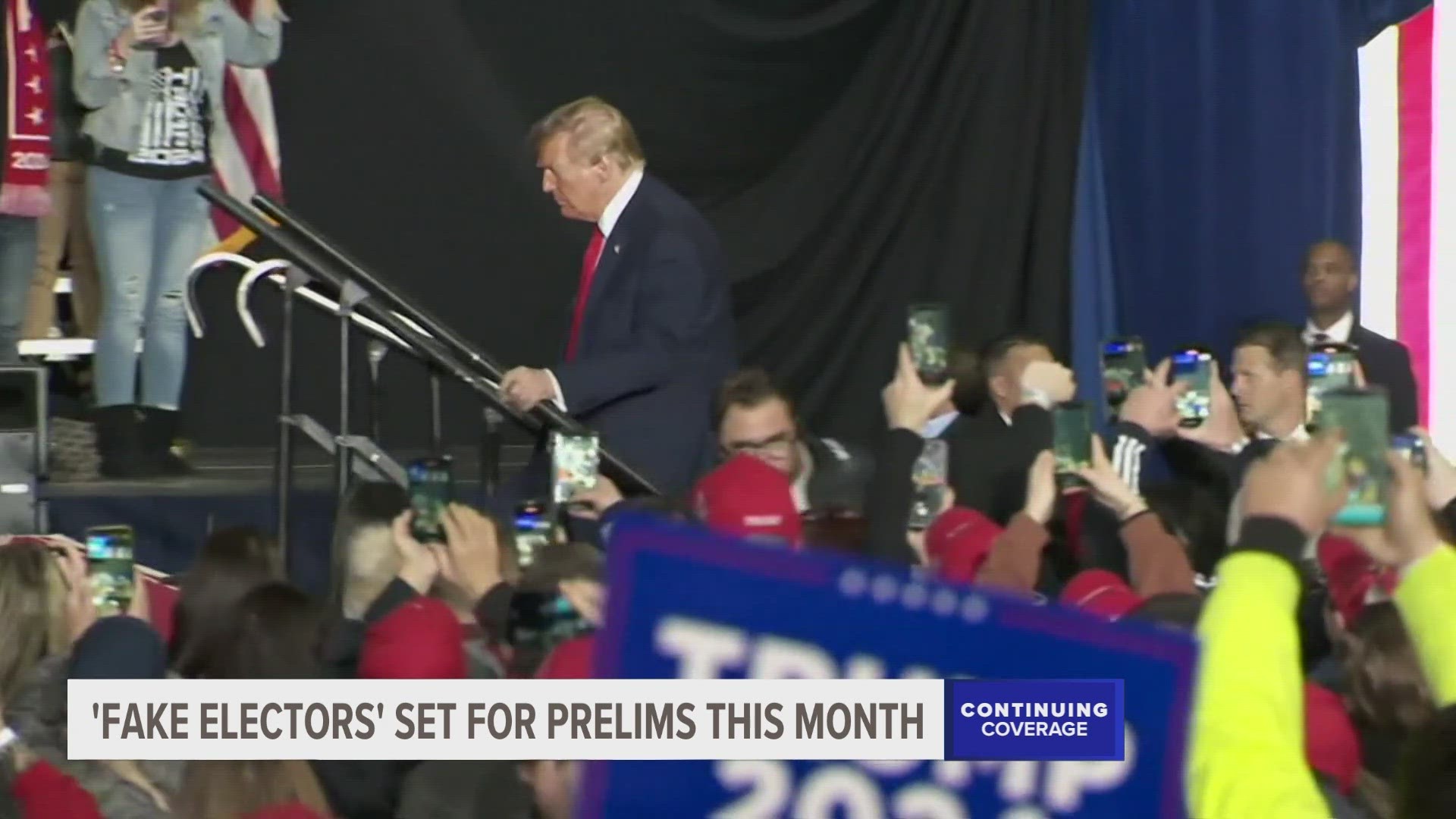GRAND RAPIDS, Mich. — Roughly 8 months after Michigan Attorney General Dana Nessel announced charges against 16 people who allegedly acted as 'fake electors' during the 2020 election to give the state's electoral votes to Donald Trump, the courts are continuing to move the process along, hearing from witnesses in some of those cases earlier this year.
"We could tell on it, that it was not an actual or an authorized certificate of votes," Dan Schwager, former counsel to the U.S. Senate secretary told the court earlier this year. "It was not an authorized certificate. It was a fake."
15 defendants now remain, as one had the charges against them dropped as part of a deal with prosecutors in the attorney general's office.
Each faces eight felony charges in connection to the alleged scheme.
But some still have yet to see a preliminary examination meant to determine whether a defendant goes to trial.
The judge in the case in January moved that hearing for some of the defendants to later this month, due to what she described as the complexity and volume of evidence.
However, Judge Kristen D. Simmons denied a separate request to pause one of the defendant's cases until transcripts could be obtained from other defendants' hearings that were held in February.
"I'm not going to bind the court's time up so that we can try- we're already inundated with requests for transcripts," Judge Simmons said in January. "And I can already tell you that this one is something that has to be farmed out to someone to assist us because of the volume of court time that we've spent."
The following defendants are set for preliminary examinations in April:
- Clifford Frost
- Rose Rook
- Kenneth Thompson
- Maya Rodriguez
- William Choate
- Marian Sheridan
- Kent Vanderwood
- Stanley Grot
But even if former president Donald Trump becomes president again, a president is not allowed to pardon people who may be convicted of state crimes. So, why might defenses in these types of cases look to further pause?
We asked a legal expert to get insight on that question.
"Like any other defense where you're talking about [an alleged] conspiracy, where you're talking about people engaging in that conspiracy, they want to get as much discovery as they possibly can before they are required to go to the preliminary hearing stage," said Cooley Law School professor Jeffrey Swartz.
Swartz said, given what has been seen already, if the defendants do end up going to trial, it would likely be several more months before they begin.
"Absent some sort of intervening fact, you're probably looking at six, eight months before you go to trial after the preliminary hearing," Swartz said.
But with the upcoming presidential election threatening to cast a shadow over these cases, Swartz said that, should they go to trial and the courts do not want to try them during the election, that could further alter the timeline.
"If it's not tried within, I would say the next five months or so, you're probably looking at after the November election," Swartz said.
►Make it easy to keep up to date with more stories like this. Download the 13 ON YOUR SIDE app now.
Have a news tip? Email news@13onyourside.com, visit our Facebook page or Twitter. Subscribe to our YouTube channel.
Watch 13 ON YOUR SIDE for free on Roku, Amazon Fire TV Stick, Apple TV and on your phone.

